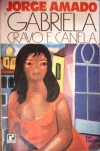Currently reading
A NEW LEASE ON LIFE IN FRANCE OF THE 1920s

On the face of it, "MOONLIGHT OVER PARIS" can be seen as a continuation of Jennifer Robson's 2 previous historical novels: (1) 'Somewhere in France: A Novel of the Great War'; and (2) 'After the War is Over'. Yet, it can also be regarded as a stand alone novel for anyone who comes to it without having read the 2 aforesaid novels.
Lady Helena Montagu-Douglas-Parr (aka Helena Parr, Helena, or "Ellie" by her closest friends) figures prominently here. In the previous 2 novels, she was largely a peripheral figure, engaged to Edward Neville-Ashford, a young aristocrat and wounded war veteran who loomed large in both of those novels. Edward had broken off their engagement to marry a woman of humbler origins whom he really loved. It was a rupture that carried a certain social fallout for Helena in London, tainting her as if she were a fallen woman. In the beginning of this novel, we find her on the slow road to recovery at her parents' estate from an outbreak of scarlet fever that had nearly killed her. Having been so close to death, she vowed to herself that she would try to make a better life for herself on her own terms. As part of that, she applies for admission to an art academy in Paris, whose classes are slated to start in the autumn of the following year. She is able to go to France, with her parents' permission, where her Aunt Agnes (aka 'Auntie A') - a widow of bohemian sensibilities with a wide social circle - has residences in Paris and Antibes and can provide both a place for Helena to stay and a large measure of familial protection and support.
Helena arrives in Paris via the ferry and train in the spring of 1924. It is her first time in Paris in a decade. She is now in a country that is determined to shake off the heavy shadows through which it has been cast since the end of the First World War. Helena proceeds by train to Antibes in the South of France, where she meets with her aunt and goes on to spend a restful and exciting summer on the beaches and along the Mediterranean shore. (Unlike today, the South of France was not a tourist haven in the summer until the mid-1920s. Indeed, hotels there would close as people travelled north in search of cooler places away from the full glare of the sun.) She goes on to have a lot of interesting experiences, rubbing shoulders with some of the people who figured prominently as part of the "Lost Generation" of American expatriates (e.g . Gerald and Sara Murphy, Ernest & Hadley Hemingway, Natalie Barney, Djuna Barnes, Gertrude Stein and Alice B. Toklas, and F. Scott & Zelda Fitzgerald) who lived large in Europe. Helena also finds love - when she least expects it - through a chance encounter with an American journalist (Sam Howard) on a road near Antibes, who stops his car one hot, sunny afternoon and offers to fix the chain on her bike, which had become disconnected. But as with most love stories, the course of true love doesn't run smooth for both of them.
"MOONLIGHT OVER PARIS" is a terrific novel, not only for any reader eager to enjoy a good book over the summer, but also for those fans of Downton Abbey and compelling love stories seeking escape from the hectic demands of work and everyday life.
 1
1













